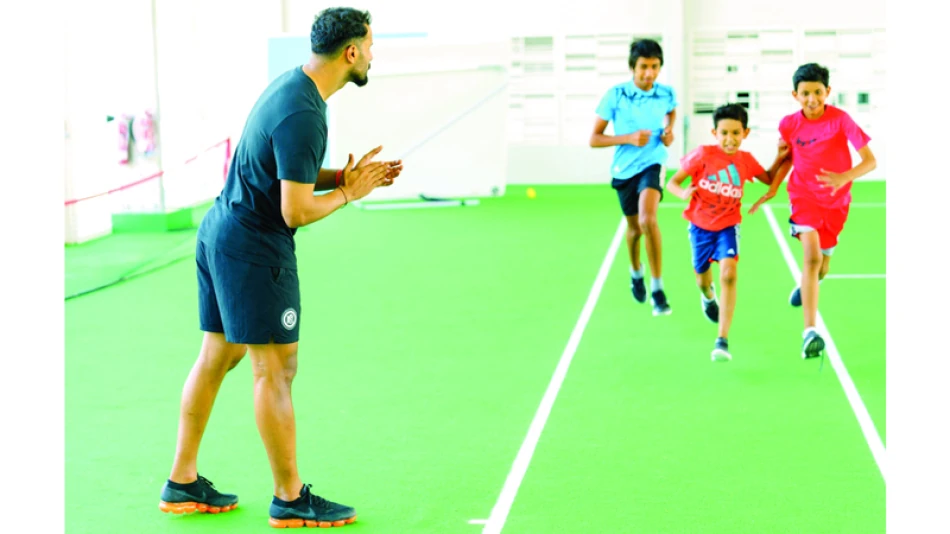
Uncovering the Disturbing Physical and Emotional Abuse Faced by Young Athletes
Abu Dhabi Launches Comprehensive Child Protection Framework for Sports Organizations
Abu Dhabi's Department of Community Development has introduced a groundbreaking child protection policy for sports organizations, identifying six distinct types of abuse that children may face during athletic activities. The policy establishes mandatory reporting requirements for all sports personnel and creates a zero-tolerance framework that could serve as a regional model for protecting young athletes.
Six Categories of Abuse Identified in Sports Settings
The new policy categorizes potential harm to children in sports environments into physical abuse, sexual abuse, psychological abuse, neglect, exploitation, and discrimination. This comprehensive classification goes beyond traditional definitions of abuse to include modern concerns about child welfare in competitive sports.
The framework explicitly prohibits causing physical harm to children, coercing them into sexual behavior, psychological mistreatment, inadequate care, exploiting children for commercial purposes, and discriminatory treatment based on prejudgments about children and their families.
Expanding Beyond Physical Contact
Notably, the policy recognizes that abuse doesn't require physical contact, acknowledging psychological manipulation and emotional harm as serious violations. This reflects growing international awareness of how power dynamics in sports can create environments ripe for various forms of exploitation.
Mandatory Reporting Creates Accountability Web
The policy establishes that all sports professionals, staff, service providers, bus drivers, security personnel, and volunteers who have direct contact with children must report suspected abuse, neglect, or violence. This broad mandate creates multiple layers of oversight that could significantly improve detection rates.
The comprehensive approach mirrors successful child protection frameworks in countries like Australia and Canada, where sports organizations have faced scrutiny over historical abuse cases. By casting a wide net for reporting responsibilities, Abu Dhabi appears to be learning from international best practices.
Protection for Whistleblowers
The policy includes anti-retaliation provisions protecting those who report suspected abuse, addressing a critical barrier that often prevents disclosure in sports environments where careers and reputations are at stake.
Four Core Principles Drive Implementation
The framework rests on four foundational principles: the child's best interest and right to participate, zero tolerance for child maltreatment, accountability, and protection from retaliation. These principles prioritize child welfare over organizational interests, even when conflicts arise.
This approach represents a significant shift from traditional sports culture, where institutional reputation and competitive success often took precedence over individual welfare concerns.
Regional Leadership in Sports Governance
Abu Dhabi's initiative positions the emirate as a leader in sports governance reform across the Middle East. The UAE has been investing heavily in sports infrastructure and hosting major international events, making robust child protection policies essential for maintaining credibility with global sports bodies.
The timing is strategic, as international sports organizations increasingly require host cities and nations to demonstrate comprehensive safeguarding measures. FIFA, the IOC, and other major bodies have strengthened their own child protection requirements following scandals in various sports.
Geographic Scope and Limitations
The policy applies to sports organizations within Abu Dhabi's geographic boundaries but notably excludes sports federations and associations, which may fall under different regulatory frameworks. This limitation could create gaps in coverage that may need addressing as the policy evolves.
Implementation Challenges and Opportunities
While the policy framework is comprehensive, successful implementation will depend on training, cultural change, and consistent enforcement. Sports organizations will need to develop new protocols, train staff, and potentially restructure operations to comply with reporting requirements.
The policy's success could influence other emirates and regional governments to adopt similar measures, potentially creating a new standard for child protection in Middle Eastern sports. This could prove particularly valuable as the region continues to attract major international sporting events and investments.
For sports organizations operating in Abu Dhabi, the policy represents both a compliance challenge and an opportunity to demonstrate leadership in athlete welfare—a factor that increasingly influences sponsorship decisions, international partnerships, and public reputation in the global sports industry.
Most Viewed News

 Sara Khaled
Sara Khaled






